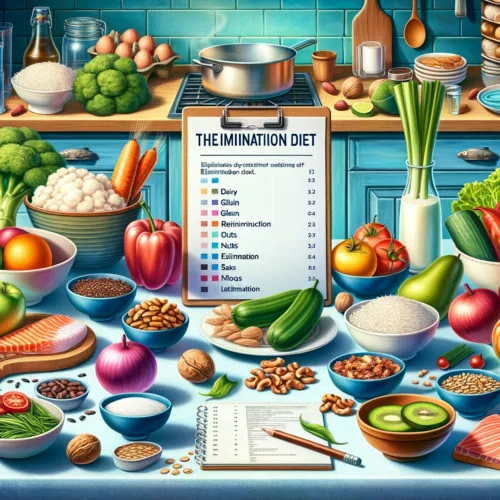Significance of the topic: the problem of overweight in modern society.
The issue of fighting excess weight is becoming more and more relevant in our modern reality. Sedentary lifestyle, unregulated diet and stress are often the reasons for gaining extra pounds. This affects not only the appearance, but also the overall health, increasing the risk of various diseases. In light of these facts, it is important to realize that addressing the problem of excess weight has far-reaching consequences and requires a comprehensive approach that includes both diet and physical activity. Nevertheless, amidst the discussions about fitness and exercise, the question of losing weight without sports arises.
Debate surrounding the role of physical activity in weight loss.
There has long been an active debate in the weight loss field regarding the importance of physical activity. Some are of the opinion that strict adherence to a strict diet and caloric deficit can achieve the desired results. While others argue that regular exercise is key to boosting metabolism, building muscle mass and achieving sustainable weight loss. The reality is that the optimal path to weight loss can be individualized and depends on many factors, including each person’s genetics, lifestyle and goals.
Arguments “for” losing weight without sports.

Diet and caloric deficit.
By focusing on a proper diet and maintaining a caloric deficit, noticeable weight loss results can be achieved. A properly balanced diet that includes a variety of foods rich in vitamins and minerals allows the body to get the nutrients it needs while limiting calories. This approach encourages the body to use fat stores as a source of energy, which promotes gradual and sustainable weight loss.
The role of proper nutrition in weight loss.
One of the key factors in losing weight without sports, is proper nutrition. Preferring low-calorie and nutritious foods, as well as portion control, helps create the negative calorie balance necessary for weight loss. It is important to focus on vegetables, fruits, proteins, and healthy fats to provide your body with everything it needs while minimizing the intake of excess calories.
Creating a caloric deficit as a basic principle of weight loss.
Creating a caloric deficit is a fundamental principle of weight loss, allowing the body to utilize stored fat reserves. This is accomplished by consuming fewer calories than are required to maintain your current weight. By carefully monitoring calorie intake and choosing nutritious foods, weight loss can be achieved without the need for strenuous exercise.
Examples of success stories in losing weight without sports.
In practice, there are many success stories about losing weight without sports. People sticking to a healthy diet and controlling calories achieve significant results. Such stories emphasize that physical activity is not the only path to weight loss success. However, it is worth remembering that it is advisable to include some form of motor activity to maintain overall health.
Metabolism and genetics.
The question of the relationship between metabolism and genetics is of great importance in understanding weight management and effective weight loss. Metabolism, or metabolism, is a complex set of chemical reactions that occur in the body to maintain vital functions. Genetics, on the other hand, determines each person’s unique traits, including metabolic rate, tendency to gain weight, and even predisposition to certain types of foods.
Individual differences in metabolism.
Every person is unique, and this applies to their metabolism as well. Some people may have a fast metabolism, which means that their body uses up calories quickly. While others may have a slow metabolism, making them more prone to weight gain. Understanding your individual metabolism allows for a more effective approach to diet planning and weight management.
The influence of genetic factors on the ability to lose weight.
Genetics also plays an important role in the body’s ability to lose weight. Some people may have a higher predisposition to fat accumulation, especially in certain areas of the body. This is due to genetic factors that affect metabolism, response to food, and other biological processes. Understanding how genetics affect weight loss without sports allows for a more individualized plan of action.
How to optimize your metabolism without sports.
Optimizing metabolism is an important aspect in achieving weight loss success without exercise. Proper nutrition that includes protein, complex carbohydrates, and healthy fats in the diet can keep metabolic processes at optimal levels. Eating regular meals, drinking water, and minimizing stress also help maintain a healthy metabolism.
The arguments “against” losing weight without sports.

Loss of muscle mass
Focusing solely on diet when losing weight without sport can have negative consequences for muscle mass. Lack of physical activity can lead to loss of muscle tissue, which in turn reduces the body’s overall appearance and metabolic activity. This can cause metabolic problems and reduce the overall quality of life.
The role of physical activity in the maintenance of muscle tissue.
Physical activity is key to maintaining and building muscle mass. Regular exercise stimulates muscle growth and maintains tone, which helps keep your metabolism at a high level. Lack of activity can lead to muscle loss, which slows weight loss and can affect your overall health in the long term.
Risks of losing muscle mass when losing weight through diet alone.
A one-sided approach to losing weight through dieting can entail the risks of losing muscle mass. In the absence of adequate protein and lack of physical activity, the body begins to break down muscle for energy. This reduces metabolism, makes the weight loss process less effective and can lead to general weakness.
Losing weight without sports: general health and fitness.
Physical activity plays a key role in strengthening the cardiovascular system. Regular exercise improves heart function, lung capacity and circulation. This helps to reduce the risk of cardiovascular diseases such as arterial hypertension, stroke and heart attack.
The cardiovascular benefits of physical activity.
Regular physical activity strengthens the cardiovascular system. They improve blood circulation, increase the level of oxygen in the blood and contribute to lowering blood pressure. Failure to exercise when losing weight without sport can lead to deterioration of the heart and increase the risk of cardiovascular disease.
Strengthening bones and joints through exercise.
Physical activity has positive effects on bone and joint health. Exercise helps strengthen bones and maintain joint flexibility. Lack of activity can weaken bones and increase the risk of injuries and fractures.
Psychological benefits of sports in weight loss.
Physical activity has a positive effect on the psychological state of weight loss. Exercise promotes the production of endorphins, the joy hormones, which helps to reduce stress, boost mood and increase self-confidence. Not being physically active can affect your overall psycho-emotional state.
Losing weight without sports: possible trade-offs and approaches.

Moderate physical activity.
Moderate exercise is the middle ground between intense exercise and complete physical inactivity. This approach involves light exercise that does not stress the body but improves overall fitness. Walking outdoors, yoga, swimming, dance classes or even daily household chores can be part of moderate activity. This approach is suitable for those who want to maintain their health, improve their overall well-being and reduce stress without overloading themselves with intense workouts. However, it is important to realize that moderate exercise can complement weight loss without sports, but for maximum results, it is recommended to pay attention to a balanced diet as well.
The positive effects of light exercise.
Moderate exercise such as walking, yoga or swimming can have a positive impact on the body without a significant amount of stress. These activities help improve overall fitness, increase metabolism and maintain muscle tone. They can be a good compromise for those who prefer to avoid intense workouts.
A combined approach: diet plus a little physical activity.
A combined approach that includes a balanced diet and moderate physical activity can be an effective solution. This approach can create a caloric deficit through nutrition, as well as improve overall fitness and maintain muscle mass. This compromise option may be more sustainable and promote long-term results.
Losing weight without sports: effective weight management.
Achieving and maintaining a healthy weight requires a conscious and focused approach. One key aspect is understanding your own body and its needs. This includes being aware of one’s metabolism, reactions to different types of food and individual differences. It is also important to properly weigh the risks and benefits of different weight loss methods, considering both short and long-term effects. Knowledge-based and considered choices help in developing a personalized weight management plan that is best for the individual and their goals. In this context, weight loss without sports becomes an option that can be supported by an informed decision and tailored to individual needs.
Understanding your body and its needs.
Being aware of your body allows you to better understand its needs. Some people can achieve weight loss success without intensive exercise by taking into account their metabolism and genetic factors. This approach helps you choose the most appropriate strategies for weight loss.
Properly weighing the risks and benefits of weight loss methods.
Each method of weight loss has its pros and cons. It is important to clearly assess the risks and benefits of the chosen approach. If for some reason sport is unavailable or undesirable, you can adjust your diet and make other lifestyle changes to achieve sustainable weight loss.
There is no definite answer to the question of losing weight without sports.
The topic of losing weight without exercise is a multifaceted and individualized one. Every body is unique, and what may work for one may not be effective for another. There are many factors including genetics, lifestyle, food preferences, and current health status that affect the possibility of achieving weight loss success without exercise. The important thing is to individualize your approach and experiment with different strategies to find the best way to achieve the desired results. Balanced nutrition, portion control and consideration of the body can be part of this individualized path to successful weight loss without sports.
A personalized approach and thoughtful choices can lead to successful outcomes.
Every body is unique and there is no one-size-fits-all recipe for weight loss. Individual factors such as genetics, lifestyle and current health status play an important role. It is important to approach weight loss wisely, based on your needs and capabilities.
The importance of balancing diet and physical activity for overall health.
Regardless of the approach taken, maintaining a balance between diet and physical activity is important for overall health. The combination of good nutrition and moderate exercise helps to strengthen the body, maintain metabolism and achieve long-term weight loss results without sports.















